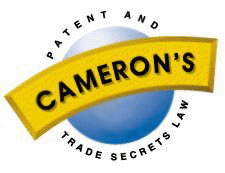
Case Comment
Corning Glass v.
Sumitomo Electric
citation(s): 5 USPQ 2d 1545 at p. 1570-1571
 Case Comment |
Corning Glass v.
|
copyright 1997 Donald M. Cameron, Aird & Berlis
Sumitomo's Willful Infringement of the '915 and '550 Patents
Willfulness of infringement is a question of fact to be determined by looking at the "totality of the circumstances." Orthokinetics, Inc. v. Safety Travel Chairs, Inc., 806 F.2d 1565, 1580 [1 USPQ 2d 1081, 1091-1092] (Fed. Cir. 1986); Central Soya Co., Inc. v. Geo A. Hormel & Co., 773 F.2d 1573, 1577 [220 USPQ 490, 492-493] (Fed. Cir. 1983); Underwater Devices Inc. v. Morrison-Knudsen Co., 717 F.2d 1389-90 [219 USPQ 569, 575-576] (Fed. Cir. 1983).
On April 15, 1984, the Federal Court of Canada ruled that Corning's Canadian patents Nos. 951,555 and 981,078, respectively corresponding to the U.S. '915 and '550 patents were valid and that Canadian patent 951,555 had been infringed by Sumitomo's optical waveguide fibers. Although Sumitomo was dropped as a party to that action, it paid the litigation costs of the remaining defendant, its customer, Canada Wire & Cable, pursuant to an indemnification agreement.
While neither the vacated ITC decision nor the Canadian decision is binding here, and this Court does not rely on either in reaching its decision as to validity and infringement of the U.S. patents in suit, it is believed appropriate to consider those decisions in ruling on Corning's contention that Sumitomo's infringement of the '915 patent has been willful.
There is no evidence that Sumitomo made any effort to change the composition of its optical waveguide fibers to avoid Corning's '915 patent after the ITC and Canadian court decisions. Sumitomo's contentions that the '915 patent does not cover either fibers with germania-doped cores or fibers with pure fused silica cores and fluorine-doped claddings are definitely not frivolous and this Court could not find that the infringement of the '915 patent was willful prior to these decisions of the Canadian court and ITC. However, after the latter decision on January 22, 1985, this Court could scarcely find otherwise. Every contention which Sumitomo makes here was carefully considered and rejected. To proceed thereafter to manufacture and sell the same fibers without changes designed to avoid infringement can only be construed as outright defiance or baseless optimism.
Because of Sumitomo's infringement of claims 1 and 2 of '915 patent and claim 1 of the '550 patent, the infringement being willful with respect to the '915 patent, Corning is entitled to an injunction against continued infringement, to recover appropriately increased damages, to be determined by the Court following a separate trial, and to an award of its attorney's fees. 35 U.S.C. §§283, 284, 285. SO ORDERED.
Return to:
Cameron's IT Law: Home Page; Index
Cameron's Canadian Patent & Trade Secrets Law: Home Page; Index